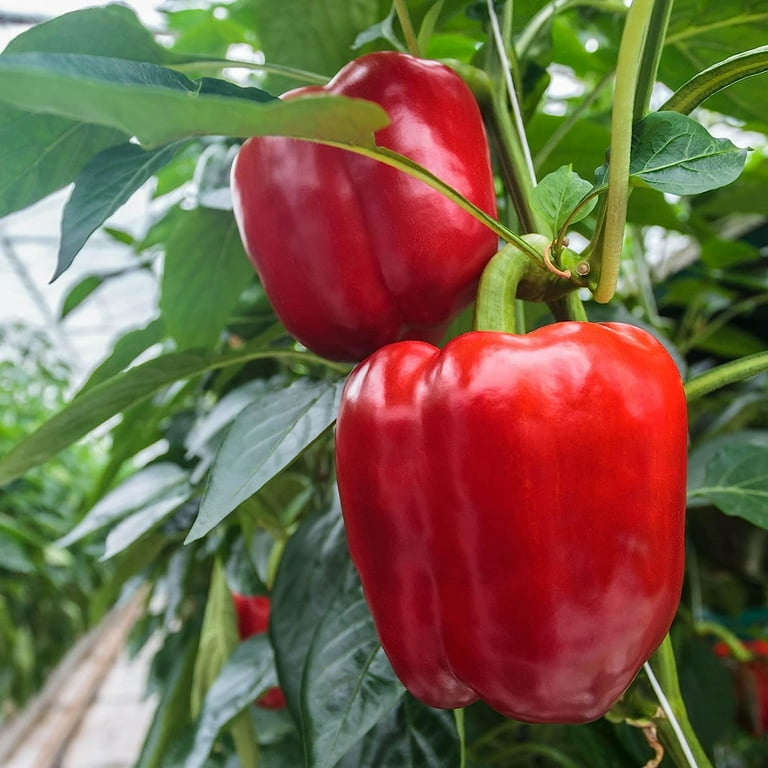Top-Rated Fertilizers for Peppers: Enhance Your Harvest Top Quality
Top-Rated Fertilizers for Peppers: Enhance Your Harvest Top Quality
Blog Article
Organic Vs. Synthetic Fertilizers: Which Is Best for Nurturing Healthy And Balanced Pepper Plants?
In the world of supporting healthy and balanced pepper plants, the selection in between organic and artificial fertilizers stands as a crucial decision with far-ranging implications. While both alternatives goal to give important nutrients to support plant development, the nuances of their effect on the soil, plant wellness, and the atmosphere trigger an argument that echoes throughout the horticulture community. Understanding the distinctive benefits and possible risks of each fertilizer kind is vital for pepper growers looking for to maximize their yields while maintaining an eco-conscious and sustainable approach.
Advantages of Organic Plant Foods
Organic fertilizers use an environmentally-friendly and lasting method to nourishing pepper plants, giving necessary nutrients without making use of synthetic chemicals. These natural fertilizers are stemmed from natural sources such as compost, manure, bone meal, and algae, promoting dirt health and wellness and biodiversity. Unlike synthetic fertilizers, natural alternatives release nutrients gradually, ensuring a consistent and balanced supply for pepper plants to grow.
One significant advantage of organic fertilizers is their capability to enhance dirt structure and water retention. By enhancing soil wellness, natural fertilizers advertise helpful microbial task, which helps in nutrient uptake by pepper plants. In addition, natural plant foods reduce the risk of chemical run-off, securing water sources from contamination and safeguarding the environment.
Furthermore, natural plant foods add to long-lasting soil fertility by advertising the development of valuable dirt organisms. These organisms assist damage down raw material, releasing nutrients in a type that is conveniently obtainable to pepper plants. best fertilizers for peppers. By promoting a healthy and balanced dirt ecological community, organic fertilizers support lasting pepper cultivation practices that benefit both plants and the atmosphere
Drawbacks of Artificial Plant Foods
Synthetic plant foods, in comparison to their organic equivalents, present different downsides when utilized to nourish pepper plants, affecting both plant health and wellness and ecological sustainability. One significant disadvantage of artificial plant foods is their tendency to leach nutrients from the dirt rapidly.
Additionally, the overuse of synthetic plant foods can add to water pollution. Excess plant foods not absorbed by plants can get rid of into water bodies, bring about eutrophication, where algae blooms deplete oxygen levels in the water, damaging aquatic life. Artificial plant foods are generally derived from non-renewable sources, such as fossil gas, adding to carbon discharges and environmental destruction throughout their manufacturing.
Nutrient Absorption Comparison
Efficient nutrient absorption plays a crucial function in the general health and growth of pepper plants. When comparing synthetic and organic plant foods in terms of nutrient absorption, natural plant foods have the benefit of providing a much more well balanced and slow-release resource of nutrients (best fertilizers for peppers). Organic plant foods have a variety of macro and trace elements that are not only helpful for the plants redirected here but also promote healthy and balanced soil microbial task, which assists in nutrient uptake. On the various other hand, artificial fertilizers frequently provide a fast release of nutrients, which can result in leaching and runoff, causing lower nutrient absorption rates by the plants.
In addition, organic plant foods improve soil framework and water retention ability, enabling pepper plants to accessibility nutrients a lot more effectively. This better dirt quality facilitates root development, enabling better nutrient absorption. Artificial fertilizers, although initially enhancing plant growth as a result of their high nutrient focus, may impede long-lasting nutrient absorption by derogatory dirt wellness over time.
Ecological Impact Factors To Consider

On the various other hand, artificial plant foods, although typically even more promptly available and focused to plants, can have detrimental results on the environment if not used effectively (best fertilizers for peppers). read the article Their manufacturing needs high power inputs, leading to greenhouse gas exhausts and adding to climate modification. Additionally, the overflow of excess synthetic fertilizers can look at here contaminate water sources, leading to eutrophication and damaging aquatic ecosystems.
Ideal Fertilizer Practices for Peppers
To achieve this, it is essential to adhere to finest fertilizer practices customized to the particular requirements of pepper plants. One vital method is to do a soil examination before applying any type of plant foods.
One more vital method is to fertilize pepper plants at the best time. Typically, peppers take advantage of obtaining fertilizer at growing and after that once more when they begin to flower. Over-fertilizing can cause nutrient inequalities and hurt the plants, so it is vital to comply with suggested application prices.
In addition, choosing a balanced plant food with an NPK proportion that fits pepper plants' requirements is essential. Inevitably, integrating organic and synthetic plant foods carefully can aid nurture healthy pepper plants while reducing environmental effect.
Final Thought

Organic fertilizers supply a sustainable and environmentally-friendly method to beneficial pepper plants, supplying vital nutrients without the usage of artificial chemicals. Unlike synthetic fertilizers, organic options launch nutrients slowly, making certain a steady and balanced supply for pepper plants to prosper.
Artificial fertilizers, in contrast to their natural equivalents, posture numerous drawbacks when made use of to nourish pepper plants, influencing both plant health and wellness and environmental sustainability. When comparing artificial and natural fertilizers in terms of nutrient absorption, natural plant foods have the advantage of offering a more well balanced and slow-release resource of nutrients.Furthermore, natural fertilizers enhance dirt structure and water retention capacity, permitting pepper plants to access nutrients much more effectively.
Report this page